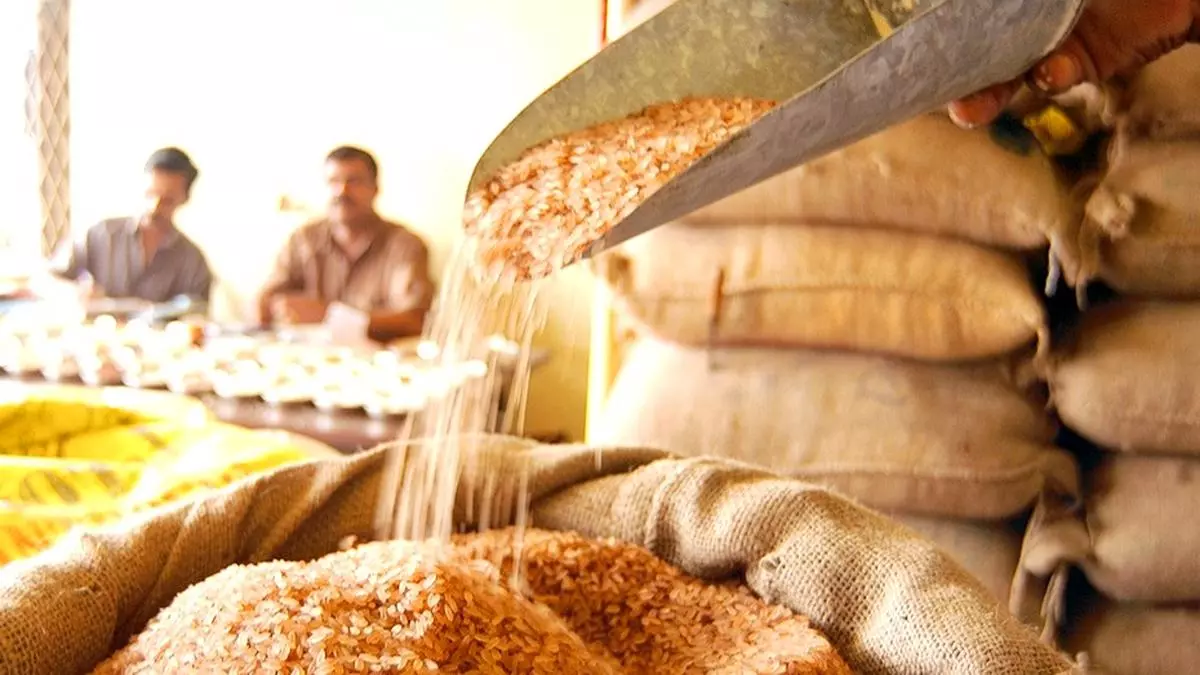The Indian Customs Service, a department of the Finance Ministry, has fined two exporters ₹75 lakh for “misleading” authorities by trying to ship non-basmati milled rice as organic non-basmati milled rice.
For an order placed last month (a copy is available with business line), the Commissioner of Customs (Appeals) also imposed an additional fine of ₹95 lakh on Reliteaur Foods Private and ₹65 lakh on Elite Agro Specialties for the offence. Both exporters have been asked to pay ₹95 lakh and ₹65 lakh to avoid seizure of their cargo of 25,500 tonnes and 16,700 tonnes respectively.
However, industry experts believe that customs authorities should have taken stricter action and that the fines would have been lighter than they could have imposed.
Shipments held
The Commissioner of Customs (Appeals) issued the order after consignments from both exporters on board the merchant ships Della and SW South Wind-I were detained by customs along with the ships. Customs officials arrested the shipments on suspicion that non-basmati milled rice, which was banned from July 2023 to September 2024, was being exported as organic non-basmati rice.
On August 12 business line reported alleged irregularities in organic rice exports after their shipments in April-July 2024 exceeded shipments during the entire fiscal year 2023-2024. Questions were raised about the buyers, mainly African countries, and the price of the shipments.
In his order, Additional Commissioner Vishwajeet Singh said he was taking a lenient stance on redemption fines as each had to pay a “heavy” detention and demurrage charge of ₹17 lakh per day for ships held up at Kandla port.
Singh said he found that the exporters had indulged in “misdeclaration of goods by declaring non-Basmati milled rice as organic non-Basmati rice (milled rice)”, thereby losing their goods, worth ₹165.34 crore , were subject to seizure under the law. provisions of section 113(d) of the Customs Act, 1962.
The role of APEDA
It said the customs had allowed exports on the basis of “provisional” transaction certificates issued to the exporters by the Sikkim State Organic Certification Agency (SSOCA), authorized by the organic export hub Agricultural and Processed Food Products Export Development Authority (Apeda) .
Apeda confirmed that SSOCA had issued the provisional transaction certificates to both exporters, which were valid when the bill of lading was submitted. However, on September 19, Apeda informed customs that the certificate issued to them had been revoked for two years.
The Additional Commissioner accepted the exporters’ argument that the certification was valid when they filed the application for shipment. He said Apeda did not provide a copy of the order despite several emails.
On September 30, Apeda’s chairman wrote that based on the detailed investigation of the matter, it appeared that the shipments were conventional rice. Referring to the request of exporters to submit new documentation to export the product as conventional non-Basmati rice, the Apeda Chairman urged the Additional Commissioner to consider the same as the consignments are no longer considered were classified as organic.
‘Serious violation’
Singh, however, said the exporters had admitted that their consignments were of conventional rice due to the fumigation carried out in the ship during loading. And based on this evidence, it was determined that the cargo of non-Basmati white rice was wrongly declared on the bills of lading as “organic non-Basmati rice (white rice)”.
Industry experts pointed out that a provisional certificate is not a final certificate. Declaring a product organic on the basis of a provisional certificate does not guarantee its accuracy and therefore the customs authorities should not have considered the provisional transaction certificate.
They said Apeda authorities had failed to take action against the exporters despite initial complaints of “serious breaches” of regulations. They also wondered why Apeda authorities had asked customs authorities and the Directorate General of Foreign Trade (DGFT) to investigate the matter.
The experts said the Customs has issued its orders on the exporters’ appeal without a copy from the National Accreditation Board (NAB), which is responsible for accreditation, evaluation and implementation of accreditation programs for certification bodies.
“According to Apeda’s letter, she conducted a detailed investigation. Why did she not share the copy of the NAB order with the customs?” wondered one expert, who did not want to be identified.
Weak adjective
The expert stated that Apeda was secretive about its research report. “Apeda’s lack of transparency has consequences for the system. For example, the US Department of Agriculture and European Union systems are very open about issues and orders,” the source said.
Others wondered how exporters could change the description of their shipments from organic to non-organic. “How can the nature of freight change? What would they have done if the Center had continued restrictions on milled rice exports?” asked a second expert.
Industry experts found it wrong that the customs order came with a weak adjective ‘appeared’ when the case was closed, and questioned whether this was done to ‘deliver a weak order’.
Economic crime?
Referring to the order which stated that the exporters had ‘intentionally misdeclared’ the cargo, they said such ‘misdeclarations’ amount to ‘deception and fraud’. “Isn’t it an economic crime?” a second expert wondered.
Referring to the customs order that the consignments were cleared on the basis of the transaction certificates issued by SSOCA, traders said the exporters appeared to blame the issuance of provisional transaction certificates for their “misdeclaration”.
The second expert said huge quantities of milled rice have been exported as organic rice and government agencies should conduct a detailed investigation.
Industry experts are questioning whether the customs order is blaming Apeda for the fiasco and taking a lenient stance. “Will the organic rice case also be buried like the cotton and sugar scam?” asked the first expert.










